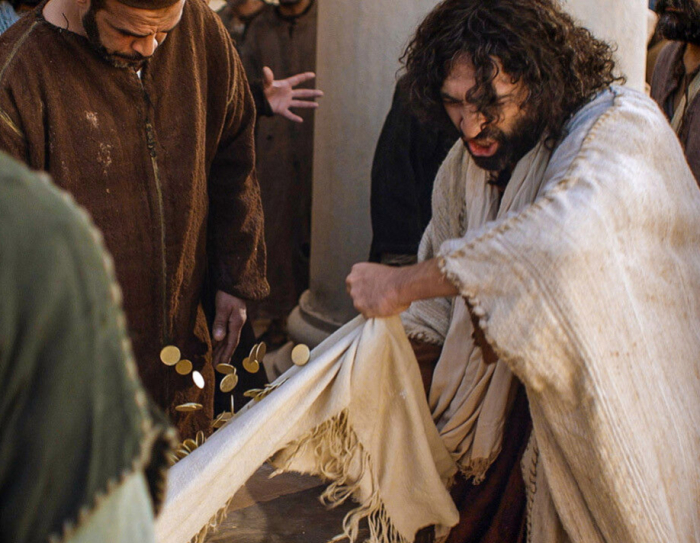John 2: 1On the third day there was a wedding in Cana of Galilee, and the mother of Jesus was there; 2 and both Jesus and His disciples were invited to the wedding. 3 When the wine ran out, the mother of Jesus *said to Him, “They have no wine.” 4 And Jesus *said to her, “Woman, [a]what does that have to do with us? My hour has not yet come.” 5 His mother *said to the servants, “Whatever He says to you, do it.” 6 Now there were six stone waterpots set there for the Jewish custom of purification, containing [b]twenty or thirty gallons each. 7 Jesus *said to them, “Fill the waterpots with water.” So they filled them up to the brim. 8 And He *said to them, “Draw some out now and take it to the [c]headwaiter.” So they took it to him. 9 When the headwaiter tasted the water which had become wine, and did not know where it came from (but the servants who had drawn the water knew), the headwaiter *called the bridegroom, 10 and *said to him, “Every man serves the good wine first, and when the people have [d]drunk freely, then he serves the poorer wine; but you have kept the good wine until now.” 11 This beginning of His [e]signs Jesus did in Cana of Galilee, and manifested His glory, and His disciples believed in Him.
Observations
(Side notes: It is interesting that John notes that this took place on the third day. So many events in the bible occur on the third day or month (Jesus’ resurrection, the congregation in Exodus 19:10-11, Philip and Nathanael called to follow 3 days after Christ’s baptism, garments had to be washed in Revelation 3:5, etc.) In Jewish weddings, a virgin marries on a Wednesday.
1On the third day there was a wedding in Cana of Galilee, and the mother of Jesus was there; 2 and both Jesus and His disciples were invited to the wedding. 3 When the wine ran out, the mother of Jesus *said to Him, “They have no wine.” 4 And Jesus said to her, “Woman, what does that have to do with us? My hour has not yet come.” 5 His mother *said to the servants, “Whatever He says to you, do it.”
Two things indicate that Mary was involved in the wedding arrangements. She know they had run out of wine and she is giving orders to the servants. So there is a high probability that Mary was related to the bride or groom.
Joseph is not mentioned in any of the events surrounding Jesus’ baptism and ministry, so scholars assume that Joseph is no longer living.
When Jesus calls his mother “Woman”, the Greek word is gunai, which is the same word Jesus used when he was on the cross and left her in the care of John (John 19:26). This was a term of respect, not insult or impatience.
6 Now there were six stone waterpots set there for the Jewish custom of purification, containing [b]twenty or thirty gallons each. 7 Jesus *said to them, “Fill the waterpots with water.” So they filled them up to the brim. 8 And He *said to them, “Draw some out now and take it to the [c]headwaiter.” So they took it to him. 9 When the headwaiter tasted the water which had become wine, and did not know where it came from (but the servants who had drawn the water knew), the headwaiter called the bridgegroom 10 and *said to him, “Every man serves the good wine first, and when the people have [d]drunk freely, then he serves the poorer wine; but you have kept the good wine until now.” 11 This beginning of His [e]signs Jesus did in Cana of Galilee, and manifested His glory, and His disciples believed in Him.
The jars that Jesus chose were jars that were typically used in ceremonial cleansing or purification. Jesus does everything with purpose. His choosing the ceremonial jars may point to Himself being our ultimate means of purification for sin.
Application Points
Jesus was social and involved Himself in the cares and life events of people. We too need to reach out to others, caring for them and sharing in the joys of every day life. In America, people get so busy and neglect getting to know one another, our neighbors, even our relatives. Taking time out to celebrate is a good use of our time.
It is also interesting to note that Jesus’ first miracle was an act of kindness and prevented social embarrassment of the families of the bridge and bridegroom. Jesus’ not only point to His glory, but they also express care and concern for His creation.
Jesus shows His desire to redeem (make new) creation whenever He performs a miracle. Healing the lame, giving site to the blind, raising the dead, casting out demons, calming the seas…..all this points to what the redeemed creation will look like at the end of time, when God’s kingdom comes and stand upon the new earth.
Jesus created approximately 150 gallons of excellent wine. That is ALOT of wine. This is a reminder that Jesus’ provision and grace is super abundant. We cannot exhaust God’s grace.


